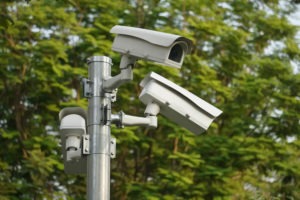What Kind of Video Footage Can Legally Be Used As Evidence?
You can typically use any video footage as evidence if your attorney obtained it lawfully. Kinds of video footage that can legally be used as evidence includes:
- Cell phone footage
- Body camera footage
- Security camera footage
- Traffic camera footage
- Drone footage
- Dashcam footage
- Footage captured by a camera crew
Video material can be compelling evidence in a personal injury or wrongful death case. Suppose you were riding your bike together with your friends and a car hit you. In this modern age, everybody at the scene is likely to pick their smartphones and snap photos or shoot videos. According to our Long Island bicycle accident attorney, cell phone video footage coming from witnesses could be admissible in court if it is reliable and relevant to the case.

What Types of Cases Benefit From Video Footage Evidence?
Video footage may be useful in personal injury cases involving:
- A car, truck, bicycle, or pedestrian accident
- A slip or trip and fall
- A medical error
- An animal attack
- A defective product
- A workplace accident
In motorcycle accidents, video footage is of great importance, especially if you were using a GoPro or similar device at the time. GoPro footage provides a ground-level view of what happened. A skilled motorcycle accident lawyer in Long Island can build you a strong case based on the real-time video evidence you provide, as accident reconstruction, road conditions’ analysis, establishing liability, etc. become easier to accomplish. As long as it is reliable and relevant, the video footage motorcyclists provide can become irrefutable evidence in a lawsuit.
What Can Video Footage Show in Motor Vehicle Accident Cases?
Video footage can provide unparalleled detail in a motor vehicle accident case. Footage of a motor vehicle accident may show:
- The collision between vehicles
- The collision between a vehicle and a bicyclist or pedestrian
- Specific illegal acts, like running a red light or stop sign, that caused the accident
Different types of video footage show different details. The angle of the camera, level of zoom, and quality of lens may determine how useful video footage is. Dash camera and traffic camera footage may be especially useful in motor vehicle accident cases. These types of footage may have the most clear and direct perspective of an accident.
What May Video Footage Show in Other Case Types?
Video footage may be available in lawsuits and insurance claims not involving motor vehicles. Videos may show:
- A slip and fall accident, or the conditions that caused a slip and fall accident
- A medical error occurring
- A physical assault
- An animal attack
- A construction accident
- A verbal admission of a product’s defect by a liable party
Our firm will seek any kind of video footage that can legally be used as evidence in your case.
What Type of Video Footage Is Prohibited?
Video footage may not be usable in a civil case if the video is:
- Irrelevant to the case: Video footage must be pertinent to the case in question if it is to be used within your case.
- Unclear: If video footage is not clear, then it is difficult for either party to draw conclusions from the video.
- Unverified: If video footage has unclear origins or either party cannot verify the video as authentic, then it may not be suitable as evidence.
- Manipulated: Editing a video may spark allegations of manipulation, and this footage may not be usable as evidence.
Certain other conditions may make video evidence unusable in your case.
What If Video Footage Is Not Available or Usable?
If video footage is not available in your case, then your lawyer will make your case using other types of evidence. Your lawyer may prove a defendant’s fault by:
- Obtaining witness accounts of your accident
- Citing a police report that indicates the defendant’s fault
- Reconstructing your accident with help from experts
- Obtaining expert testimony
- Taking photographs that indicate the defendant’s fault
Video footage may be unavailable in most cases. Though it is valuable type of evidence, video is not necessary to make your case.
What Is the Standard for Liability in Civil Cases?
Negligence is one standard for liability in wrongful death and personal injury cases. Our firm can use video footage and other evidence to prove a defendant’s negligence. Video footage may show the defendant acting in unreasonable and dangerous ways, and our team can use this video evidence as proof of negligence.
Our firm proves negligence by:
- Establishing that the defendant owed you a duty of care
- Proving the defendant’s breach of duty of care (perhaps using video footage)
- Showing that the breach of duty of care caused your accident
We will then show the damages caused by a defendant’s negligence.
What Are Recoverable Damages in Civil Cases?
Recoverable damages in personal injury and wrongful death cases may include medical treatment, pain and suffering, lost income, lost financial support, diminished earning power, funeral expenses, and other damages.
A plaintiff’s recoverable losses may depend on:
- Whether your case involves a death, or only non-fatal injuries
- How serious your injuries are
- Whether you suffered a permanent disability
- The cost of medical care and other economic damages
- The severity of your pain and suffering
Our team fights for fair compensation for every client.
Call the Law Office of Cohen & Jaffe, LLP Today to Discuss Your Case
If you hire our firm, we will seek video footage and other relevant evidence in your case. We will then pursue the financial recovery that you deserve. CVP § 214 and other legal statutes may limit your time to seek compensation, so do not wait.
Call the Law Office of Cohen & Jaffe, LLP today at (866) 878-6774 for a FREE consultation.









